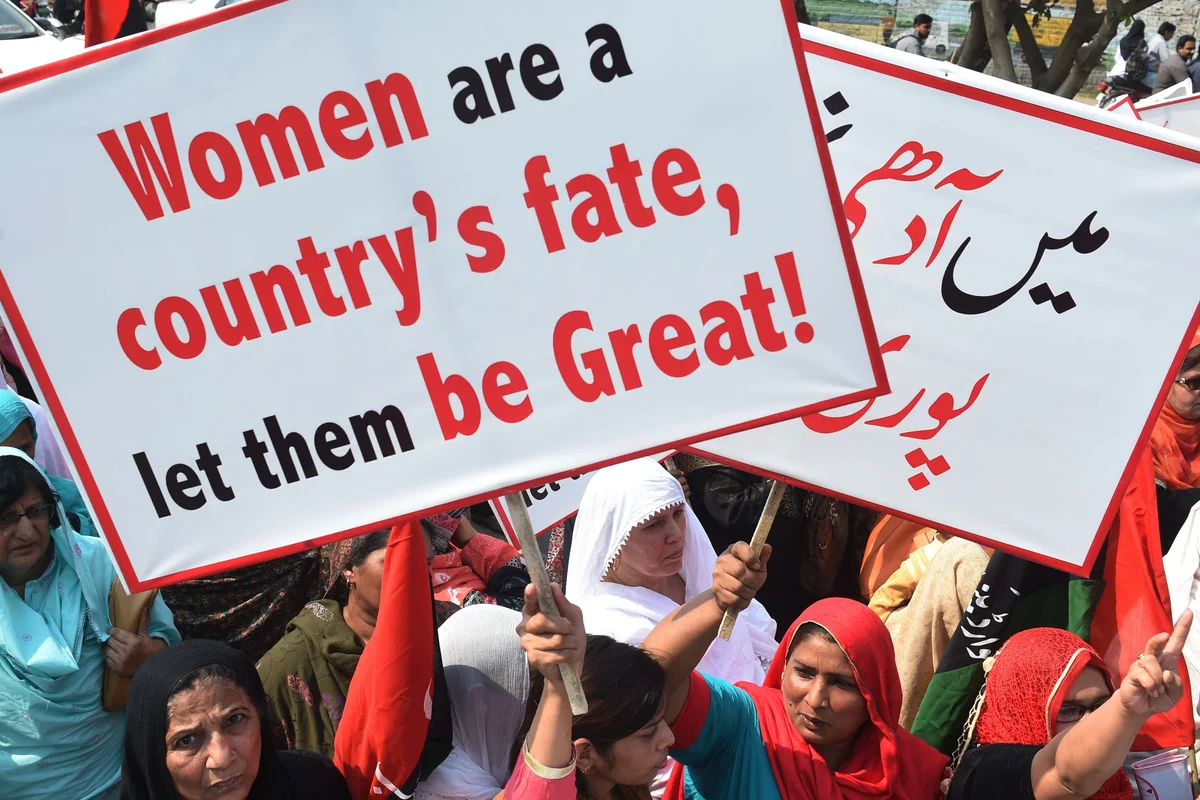Majority of Pakistani women lack say in reproductive health, UN report finds
UNFPA representative says investing in education, jobs, healthcare, and family planning is key to empowering Pakistan’s young population

Asma Kundi
Producer, Islamabad
Asma Kundi is a multimedia broadcast journalist with an experience of almost 15 years. Served national and international media industry as reporter, producer and news editor.

Pakistan reports 41 teen births per 1,000 girls, 18% child marriages, only 32% use of modern contraception, and 16% unmet need for family planning.
AFP
For millions of women in Pakistan, some of life’s most personal decisions -- when to marry, whether to have children, how many, and when — are often made by someone else, according to a UN report released in Islamabad on Tuesday.
This lack of control over their own lives carries a heavy cost, with a woman dying from pregnancy-related complications every 45 minutes.
The State of World Population Report 2025, titled The Real Fertility Crisis: The Pursuit of Reproductive Agency in a Changing World, was issued by the United Nations Population Fund (UNFPA).
It highlights Pakistan’s troubling indicators: a teenage birth rate of 41 per 1,000 girls, over 18% of women married before the age of 18, and only 32% of married women using modern contraceptive methods. Moreover, more than 16% of women still have an unmet need for family planning.
Drawing from extensive academic research and a new UNFPA-YouGov survey conducted across 14 countries -- covering over one-third of the global population -- the report examines how economic pressures and entrenched gender inequality limit reproductive choices.
Among the global findings:
- 1 in 5 respondents said they were pressured to become parents before they felt ready
- 1 in 3 experienced an unintended pregnancy
- 11% cited unfair caregiving burdens as a barrier to having children
- More than half said financial hurdles prevented them from expanding their families
- Around 40% of people over 50 reported not having as many children as they had hoped for
Speaking to Nukta, Dr. Luay Shabaneh, UNFPA’s representative in Pakistan, emphasized that investing in education, employment, healthcare, and family planning is essential to empowering the country’s overwhelmingly young population -- nearly 67% of whom are under the age of 30 -- to realize their potential and shape a better future.
“Every couple should have the freedom to choose their future without pressure or obstacles,” Dr. Shabaneh said.
“Sustainable population trends come from strengthening systems that empower people to make decisions aligned with their values and aspirations.”
The report calls on governments to move away from simplistic, target-based population policies that often undermine human dignity. Instead, it urges a rights-based approach -- expanding access to affordable housing, paid parental leave, quality education, and universal health coverage -- while actively dismantling gender-based barriers.
As governments grapple with rapidly evolving demographic realities, UNFPA reaffirmed its commitment to support Pakistan in crafting policies that foster dignity, equality, and opportunity for all.







Comments
See what people are discussing